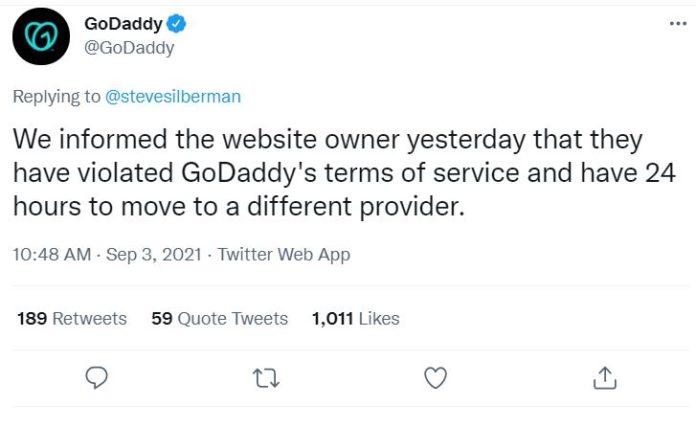
Good morning, communicators:
The rise of the Delta variant in the U.S. has brought business travel to a halt.
September marks the beginning of the busy corporate travel season, but many companies are having second thoughts about sending their workers on planes, especially as they delay their return to work dates.
Some 60 percent of business travelers said they are likely to postpone their travel plans and 67 percent said they are likely to take fewer trips, according to a report by the American Hotel & Lodging Association, which conducted a survey in August involving 400 business travelers.
Business travel might struggle to come back—even after the pandemic has abated. According to a Bloomberg survey of 45 large businesses in Europe, the U.S. and Asia, 84% plan to spend less on travel for their employees. It’s a reminder for communicators and PR pros to continue investing in digital tools and experiences. For better or for worse, the Zoom call is very much here to stay.
Here are today’s other top stories:
U.S. businesses speak out on Texas abortion law
As companies continue to find their voice on divisive cultural and political issues, the latest struggle over abortion rights in the U.S. has sparked some to enter the fray. After a new Texas law banned all abortion procedures after six weeks of pregnancy, and created a bounty system that effectively closed abortion clinics in the state, some companies are pushing back.
Webhosting service GoDaddy refused to continue servicing the website where people could report fellow citizens who were seeking out abortion services:
We informed the website owner yesterday that they have violated GoDaddy’s terms of service and have 24 hours to move to a different provider.
— GoDaddy (@GoDaddy) September 3, 2021
Texas-based dating app companies Match and Bumble both spoke out against the law—and created funds for employees who might need to travel to other states for health care services.
“I’m not speaking about this as the CEO of a company,” [Match CEO Shar Dubey] wrote. “I’m speaking about this personally, as a mother and a woman who has fervently cared about women’s rights, including the very fundamental right of choice over her body.”
Uber and Lyft promised to pay legal fees for drivers who, under the new law, could be sued for giving rides to women on their way to an abortion clinic.
Business Insider continued:
Lyft said it created a Driver Legal Defense Fund to completely front the costs that drivers could incur under the new law.
“Drivers are never responsible for monitoring where their riders go or why,” Lyft said Friday. “Imagine being a driver and not knowing if you are breaking the law by giving someone a ride. Similarly, riders never have to justify, or even share, where they are going and why.
What you should know: Even though a majority of Americans say they want companies to speak out on social and cultural issues, many organizations still struggle with knowing when to speak out or when to remain silent—especially when addressing such a polarizing issue. So far, organizations that have spoken against the Texas abortion law and Supreme Court decision have focused on their personal values and offered resources to affected employees.
Regardless, this situation is a reminder that cultural and political debates can have profound consequences on essential stakeholders such as employees, customers and clients—and that messaging should take into account the lived experience of everyone who interacts with your brand.
MEASURED THOUGHTS
American consumers still want to shop in-person once the pandemic is over, according to new data from the Harris Poll and Morning Brew. Almost three-fourths (71%) of Americans shop in-person at least once a week, confirming that while e-commerce habits are on the rise, there are many products shoppers still want to hold in their hand before the buy.
A year from now, 63% of consumers say they will do most of their shopping in-person, and 37% said they would do most of their buying online.
You can read the full report here.
SOCIAL BUZZ
TikTok has overtaken YouTube in average U.S. watch time on Android devices, according to new data from analytics outfit App Annie.
In the US, ByteDance’s app first overtook YouTube in August last year, and as of June 2021 its users watched over 24 hours of content per month, compared with 22 hours and 40 minutes on Google’s video platform. In the UK the difference is even more stark: TikTok overtook YouTube in May last year and users there now reportedly watch almost 26 hours of content a month, compared to less than 16 on YouTube.
The numbers reveal the meteoric popularity of TikTok and offer a compelling case for short-form video content. (TikTok videos are capped at three minutes for most videos, compared to YouTube’s average of 10 minutes.)
YouTube is still ahead in overall content time spent on the app, but that’s hardly surprising as the video behemoth boasts 2 billion users compared to TikTok’s 700 million.
Proton Mail walks back some of its brashest claims on privacy
After the company complied with a request from European authorities to hand over a user’s IP address and other information, critics claimed that the company’s tough stance on user privacy was just corporate bluster. The company has gone on to change the language on its website about how it will maintain the privacy of users.
Back in January this year, the company’s homepage stated: “No personal information is required to create your secure email account. By default, we do not keep any IP logs which can be linked to your anonymous email account. Your privacy comes first.”
Today that boast has been replaced with a mealy-mouthed version: “ProtonMail is email that respects privacy and puts people (not advertisers) first. Your data belongs to you, and our encryption ensures that. We also provide an anonymous email gateway.”
What you should know: Good PR pros know better than to make promises your organization can’t keep. However, without a complex understanding of digital privacy and international law, you might not completely understand what promises you actually can keep—so be mindful of how you cast these sorts of claims.
While a ham-fisted effort to protect user privacy has the potential to harm your reputation, making claims about user privacy that can’t be kept will also result in a backlash when the proverbial rubber meets the road.
TAKE OUR SURVEY
If you’re looking for benchmark data to show your bosses the next time you ask for a raise or search for a new job, lend us a hand—and help yourself and your peers while you’re at it. Participate in Ragan’s Salary & Workplace Culture Survey, a comprehensive look at salaries, benefits, culture, bonuses and other aspects of the job in a fast-moving industry.
Both internal and external communicators are encouraged to participate.
By taking part, you will receive a $150 discount to a Ragan virtual conference of your choice and be entered to win one of five $50 gift cards. All who complete the survey will receive a full report on the findings. Responses are anonymous. Enter by Sept. 17.
Take the Ragan Salary & Workplace Culture Survey now.
Human Rights Campaign parts with exec who counseled former Gov. Andrew Cuomo
Alphonso David, the president of the Human Rights Campaign, has been fired for cause after a report revealed he had counseled the former governor of New York on how to handle his sexual harassment allegations. Cuomo was forced to resign the governorship earlier this year over the scandal.
Mr. David said he would fight his firing. “As a Black, gay man who has spent his whole life fighting for civil and human rights, they cannot shut me up,” he said in a Twitter post late Monday. “Expect a legal challenge.”
Earlier, the co-chairs of the board, Morgan Cox and Jodie Patterson, said in a statement that they had decided to end Mr. David’s role “effective immediately, for violations of his contract with the Human Rights Campaign.”
“This is a painful moment in our movement,” they wrote. “While the board’s decision is not the outcome we had ever envisioned or hoped for in terms of Mr. David’s tenure with H.R.C., his actions have put us in an untenable position by violating H.R.C.’s core values, policies and mission.”
What you should know: The firing is another example of how the world has changed since the #MeToo movement begun shining a spotlight on the pernicious and intransigent problem of sexual harassment in workplaces from Hollywood to Capitol Hill. Organizations and leaders are facing very real consequences for how they respond to allegations of sexual misconduct and harassment, and while everyone is entitled to legal counsel, the public isn’t ready to extend the same the considerations to other forms of counsel.
The incident should give PR firms some pause, who have long made a practice of working with disreputable organizations to repair reputations and clean up scandalous media narratives. When it comes to offering counsel, the hassle might not be worth the retainer—particularly when someone is facing multiple credible allegations of sexual harassment.
SOUNDING BOARD
Do you plan to travel for work in 2021? Not until 2023? What has to change for your travel plans to change?
Share your thoughts with us in the comments or on Twitter with our hashtag #DailyScoop.
POLL: Will you be traveling for work this year? Next year? Tell us what you are thinking with our hashtag #DailyScoop
— PR Daily (@PRDaily) September 7, 2021








